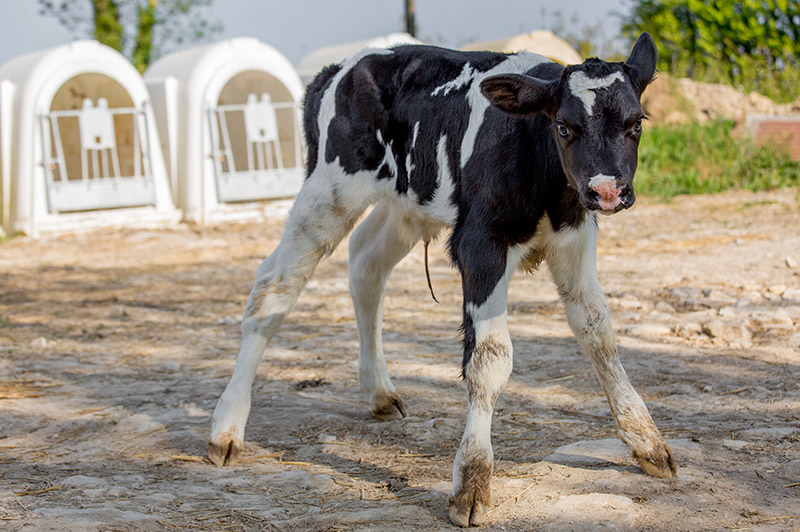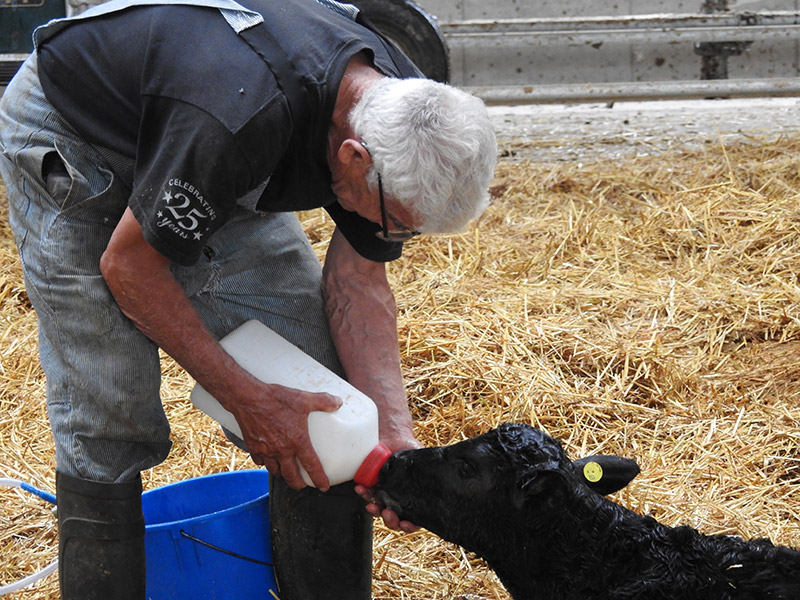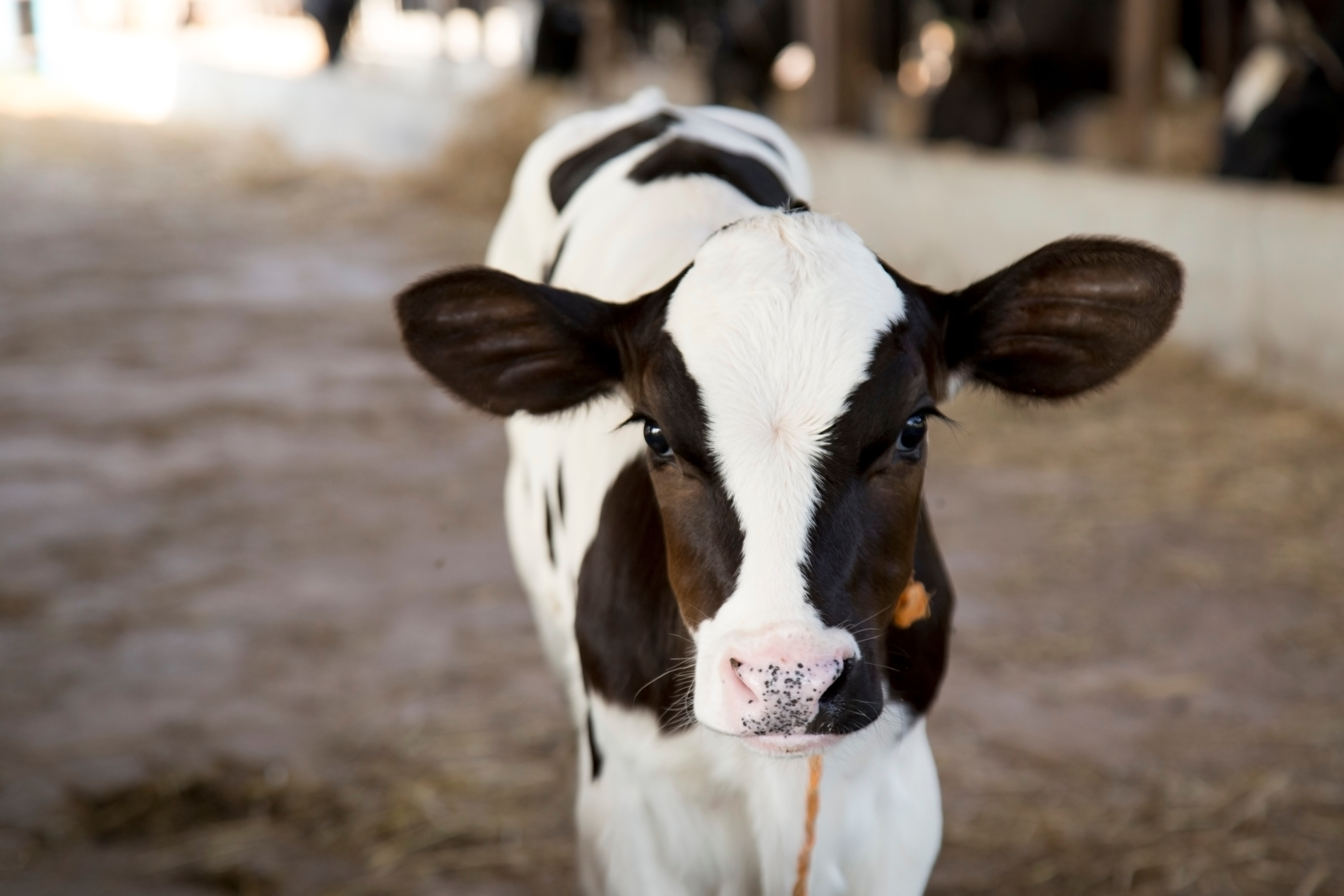Section 1 | Colostrum Management in Dairy Calves
Page 03 /
Why is Colostrum Management So Important?
Colostrum, the first milking after calving that should be given to calves, is the single most important management practice that can influence the health, lifetime productivity, and the ultimate success of a calf.

Why is Colostrum so Important?
The placenta of the cow separates the blood supply of the dam from the calf. This means that protective antibodies are not transferred during pregnancy. Because of this, calves are born without antibodies that are critical for the immune system to function, making them very susceptible disease.
Colostrum contains antibodies, or immunoglobulins, that can be absorbed into the calf within the first few hours after birth to provide disease protection. This is called passive transfer of immunity. Passive transfer of immunity is required for the calf to begin developing its own immune system.
It is important to note that colostrum contains more than just immunoglobulins! It has higher fat, protein, insulin, and other hormones when compared to milk.
These different components of colostrum help in:
- Developing the gut
- Improving the absorption of nutrients
- Stimulating the activity of different body systems
Proper management of colostrum can go a long way in protecting against disease and helping in the growth and development of the calf. Ensuring proper growth and development of the calf’s immune system will prevent the development of disease later on in life and will minimize the amount of treatments required. Less disease = Less antimicrobial use!
For more information on calf-specific disease, visit our other species-specific FAAST Reviews:
- The Antimicrobial Stewardship in the Ontario Beef Industry FAAST Review contains in-depth overviews of both neonatal diarrhea and bovine respiratory disease, including information on identifying, treating and preventing disease
- The Antimicrobial Stewardship in the Ontario Veal Industry FAAST Review contains information for producers on bovine respiratory disease including causes, identification, treatment, and prevention

Source: ACER Consulting Ltd.
What Happens When Colostrum Management Goes Wrong?
If calves don’t absorb enough immunoglobulins from colostrum, this will result in failed transfer of passive immunity (FPT). This leaves calves susceptible to disease which can be difficult to overcome.
If calves have failed transfer of passive immunity, they are likely to have significant challenges, such as being1:
- 2 times more likely to die
- 1.8 times more likely to be treated with antimicrobial medications for respiratory disease
- 1.5 times more likely to be treated for diarrhea
- 2 times more likely to be treated with antimicrobial medications for any disease
Calves with failed transfer of passive immunity will also have reduced growth and health. Cumulatively, when all of these factors are put together, each case of FPT costs $90.

References
- Raboisson, D., P. Trillat, and C. Cahuzac. 2016. Failure of Passive Immune Transfer in Calves: A Meta-Analysis on the Consequences and Assessment of the Economic Impact. PLOS ONE.